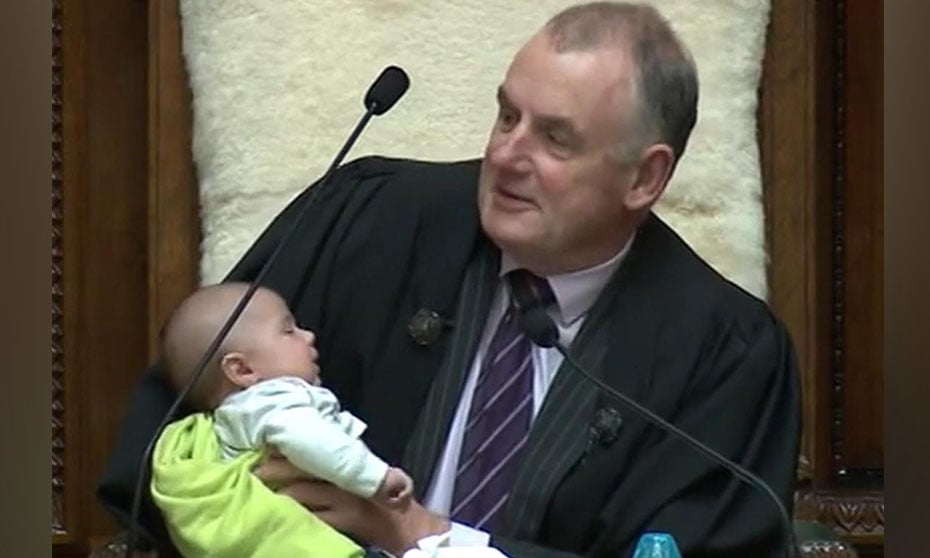
'Most working people struggle to balance the needs of a baby with the demands of their boss'

The images of House Speaker Trevor Mallard cradling a baby in Parliament have been welcomed around New Zealand and raised important questions about how employers can encourage family-friendly workplaces.
Mallard cradled the baby boy, who belonged to his colleague, Member of Parliament Tāmati Coffey. Mallard fed the baby a bottle during the debate in the House of Representatives.
Coffey had just returned from paternity leave after his son, with partner Tim Smith, was born in July. The baby was born via surrogate and is biologically Smith's.
The images have sparked the Public Service Association (PSA) to warn most families can only dream of such support in the workplace.
PSA National Secretary Glenn Barclay said all employers should take heed of this positive example and make New Zealand jobs more child and family friendly.
“The sad reality for most working people is they struggle to balance the needs of a baby with the demands of their boss.”
Barclay is one of two PSA National Secretaries, and with his counterpart Erin Polaczuk currently on maternity leave herself the question of support for breastfeeding mothers in the workplace is highly topical for the union.
The World Health Organisation recommends babies are exclusively breastfed until they are six months old, with breastfeeding continued alongside appropriate complementary foods up to the age of two and older.
While these recommendations are echoed by Plunket and the NZ Ministry of Health, a 2017 study suggests half of New Zealand babies stop being exclusively breastfed by four months old.
READ MORE: Are employees on maternity leave entitled to accrue leave?
Paid parental leave is only available at present for 22 weeks. It will be extended to 26 weeks in 2020.
“New Zealand law currently gives employers too many loopholes to get out of providing suitable breaks and facilities for breastfeeding or expressing at work,” said Barclay.
“Either employment laws should provide stronger support for mothers returning to work after six months, or paid parental leave should be extended to a year or longer.”